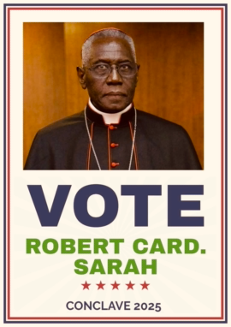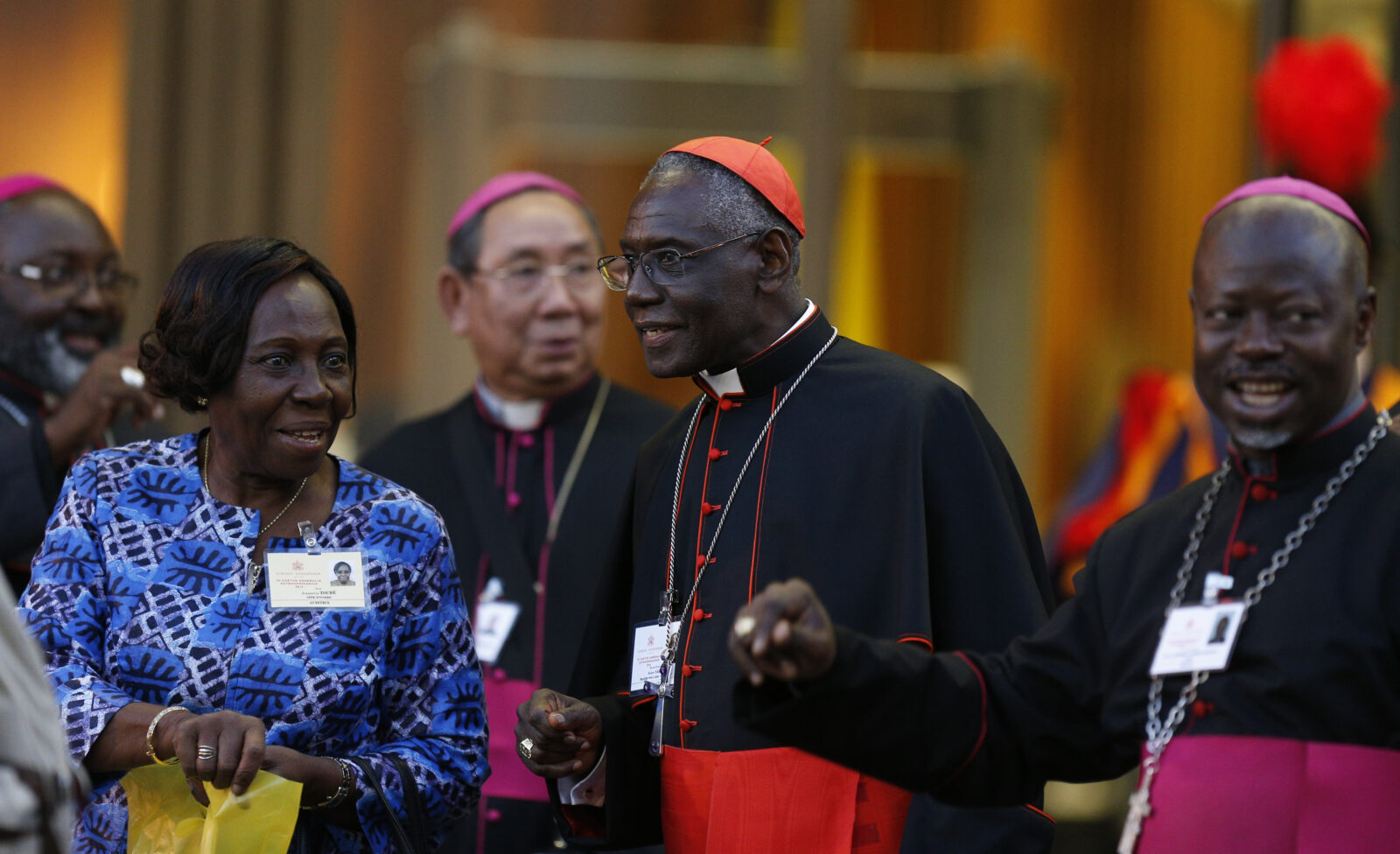A Decolonial Turning Point for the Papacy?
A Decolonial Turning Point for the Papacy?
By Dr Halim Gençoğlu
The Catholic Church stands at a critical crossroads. As it grapples with declining credibility in the West, growing spiritual hunger in the Global South, and internal calls for reform, questions surrounding its future leadership have taken on renewed urgency. For centuries, the papacy has been shaped largely by European traditions and perspectives, even as the heart of the global Catholic population has shifted dramatically toward Africa, Latin America, and Asia. Amid this transformation, the rise of figures like Cardinal Robert Sarah has sparked conversations about whether the Church is ready to reflect its truly global identity. Could his election stand for more than just a symbolic gesture? Might it signal the beginning of a new era for the Vatican—one rooted in humility, authenticity, and a broader vision of the Church’s mission in the 21st century?
Global Catholicism and the Case for New Leadership
For over two thousand years, the Vatican has stood at the crossroads of spiritual leadership and global influence. But alongside its authority, the Church has carried the weight of deep and lasting controversies.
In the 16th century, the scandal of selling indulgences sparked outrage and ultimately led to Martin Luther’s rebellion and the Protestant Reformation. In the 19th and 20th centuries, troubling political alliances most notoriously the Concordat with Nazi Germany further damaged the Church’s moral credibility. And today, even amid efforts at reform, the shadow of widespread clerical abuse continues to haunt the institution and its faithful.
A common thread runs through many of these crises: a predominantly Eurocentric leadership often disconnected from the rich cultural and geographic diversity of the global Catholic Church. In a world where a growing majority of Catholics reside in Africa and Latin America, this concentration of power in Europe feels increasingly out of sync with the Church’s universal identity.

This is where Cardinal Robert Sarah enters the picture—a figure whose life story mirrors the Church’s expanding global reach. Born in a remote village in Guinea, raised in poverty, and shaped by political instability, Cardinal Sarah rose through the ranks of the Church with unwavering faith and humility. His spiritual depth, courage, and commitment to traditional Catholic values have made him a compelling voice for renewal.
Known for his outspoken criticism of secularism and moral relativism in the West, Cardinal Sarah has advocated for silence, contemplation, and a return to spiritual authenticity in a noisy, distracted world. His African heritage also offers a perspective deeply rooted in regions where Christianity is not just growing but thriving with fervor and commitment.
The possibility of Cardinal Sarah becoming Pope is more than symbolic. It would stand for a genuine shift in the Church’s leadership—a recognition that wisdom, holiness, and authority are not confined to any one continent. His election would send a powerful message of inclusion and affirmation to millions of Catholics in Africa, Asia, and Latin America who have long felt sidelined in Vatican decisions.
At a time when the Church faces one of the most serious crises in its history, bold action is needed. The faithful are calling not just for structural change, but for spiritual renewal grounded in humility and integrity. Electing Cardinal Robert Sarah could mark a turning point—not only a historic moment, but a step toward restoring trust and revitalizing the Church’s mission.
After all, Jesus of Nazareth—the very foundation of Christianity—was a Middle Eastern Jew, not European. His culture, ethnicity, and lived experience were rooted in the Semitic world of Judea and Galilee. There is no theological reason the papacy should be confined to Europe. In fact, choosing a Pope like Cardinal Sarah would be a fitting reflection of Christianity’s true and diverse heritage.
A Decolonial Turning Point for the Papacy
The prospect of Cardinal Robert Sarah ascending to the papacy invites more than a change in leadership—it gestures toward a deeper decolonial shift within the Catholic Church. For too long, ecclesiastical power has remained concentrated in Europe, perpetuating structures and symbols rooted in colonial hierarchies and Eurocentric assumptions. This imbalance not only distorts the universal nature of the Church but also marginalizes the lived experiences and theological insights of the Global South, where Catholicism is most alive and expanding.
A decolonial perspective calls for more than mere representation; it demands the dismantling of epistemic and institutional dominance. Electing a Pope from Africa would not only acknowledge the vibrant faith traditions beyond Europe but also affirm that spiritual authority, theological depth, and moral leadership are not the exclusive preserve of former imperial centers. It would mark a necessary reorientation—one that honors the full diversity of the Body of Christ and begins to heal the historical silencing of non-European voices.
In Cardinal Sarah’s life and witness, there exists the potential to reimagine the Church not as a relic of empire, but as a global communion grounded in humility, authenticity, and shared dignity. Such a transformation would be not just historical, but it would be decolonial in the truest sense.
















Leave a Reply